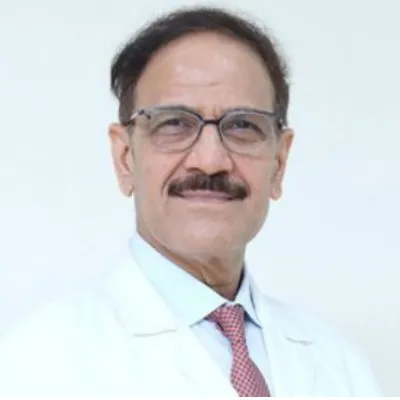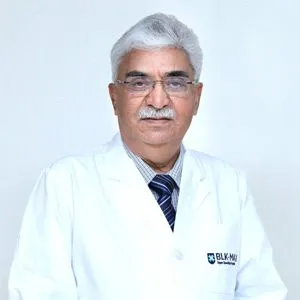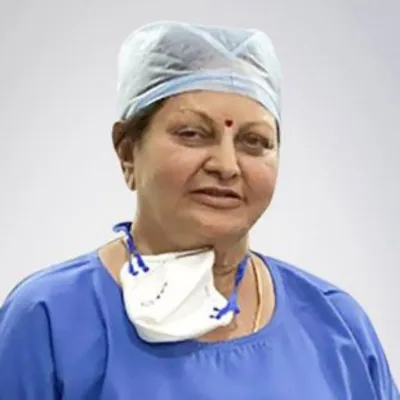Best Orthopedic Surgeons in Artemis Hospital Gurgaon
 17 December,2025
Read More
17 December,2025
Read More
Starting From: USD 5,413 - USD 8,120
Robotically Assisted Heart Surgery is affordable in India. The cost of Robotically Assisted Heart Surgery in India lies between USD 5,413 - USD 8,120. The exact procedure price depends on multiple factors such as the surgeon's experience, type of hospital, severity of the condition, patient's general condition,�etc.
Heart surgery has witnessed remarkable advancements over the years, with technology playing a pivotal role in enhancing surgical outcomes and patient experiences. One of the most significant breakthroughs in cardiac surgery is the advent of robotically assisted procedures. This innovative approach combines the skill and expertise of cardiac surgeons with the precision and capabilities of robotic systems. By providing enhanced visualization, precision, and minimally invasive techniques, robotically assisted heart surgery has revolutionized the field, offering patients a range of benefits and improving overall cardiac care.
Traditionally, cardiac surgery involved large incisions and open-heart procedures, often requiring prolonged hospital stays and extensive recovery periods. While these techniques have been highly effective in treating a wide range of heart conditions, they come with inherent challenges, including significant tissue trauma, prolonged recovery times, and increased risk of post-operative complications.
Robotically assisted heart surgery represents a transformative shift in the field of cardiac surgery. It involves the use of specialized robotic systems, which consist of small, precise instruments and a high-definition camera. These instruments are controlled by the surgeon from a console in the operating room, providing a magnified, three-dimensional view of the surgical site.
The best candidates for robotically assisted heart surgery are individuals who meet specific criteria and have certain cardiac conditions that can be effectively treated using this innovative approach. Here are some considerations for identifying suitable candidates:
It's important to emphasize that the final decision regarding robotically assisted heart surgery is made by the cardiac surgical team after a thorough evaluation of the patient's specific circumstances. Alternative treatment options, such as catheter-based interventions or traditional open-heart surgery, may also be considered depending on the patient's unique situation.
While robotically assisted heart surgery offers significant advantages, it's important to note that not all cardiac procedures are suitable for this approach. The decision to opt for robotically assisted surgery is made after a thorough evaluation by the cardiac surgical team, considering factors such as the specific condition being treated, the patient's overall health, and the surgeon's expertise.
As with any surgical procedure, there are potential risks associated with robotically assisted heart surgery, including bleeding, infection, and adverse reactions to anesthesia. Additionally, while rare, there may be specific risks related to the use of robotic technology.
Robotically assisted heart surgery represents a monumental leap forward in the field of cardiac surgery. By harnessing the power of advanced robotic technology, cardiac surgeons can provide patients with procedures that are not only highly effective but also minimally invasive, resulting in quicker recoveries and improved quality of life. As this technology continues to evolve, it is poised to play an even greater role in the future of cardiac care, further enhancing surgical outcomes and benefiting patients worldwide.

Chairman
Interventional Cardiologist
BLK-Max Super Speciality Hospital, New Delhi

Director
Cardiologist, Interventional Cardiologist
Max Super Speciality Hospital, Saket, New Delhi

Chairman
Cardiac Electrophysiologist, Interventional Cardiologist
BLK-Max Super Speciality Hospital, New Delhi

Consultant
Interventional Cardiologist
Indraprastha Apollo Hospital, New Delhi

Head of Department (HOD)
Cardiologist
Nanavati Super Specialty Hospital, Mumbai

Consultant
Interventional Cardiologist
Apollo Hospital Chennai, Greams Road
Doctor of Pharmacy
Dr. Deepanshu Siwach is a skilled clinical pharmacist with a Doctor of Pharmacy degree.?He has 4+?years of experience and has worked with thousands of patients. He has been associated with some of the top hospitals, such as Artemis Gurgaon.
Dr. Deepanshu Siwach is a skilled clinical pharmacist with a Doctor of Pharmacy degree.?He has 4+?years of experience and has worked with thousands of patients. He has been associated with some of the top hospitals, such as Artemis Gurgaon....
Dr. Aseem Ranjan Srivastava is an experienced Pediatric Cardiothoracic Surgeon specializing in Minimal Access and Robotic Cardiac Surgery. He strongly recommends prompt corrective repair when possible....
The Art of Effective Communication
 17 December,2025
Read More
17 December,2025
Read More
 16 December,2025
Read More
16 December,2025
Read More
 10 December,2025
Read More
10 December,2025
Read More
 09 December,2025
Read More
09 December,2025
Read More
 05 December,2025
Read More
05 December,2025
Read More
 04 December,2025
Read More
04 December,2025
Read More